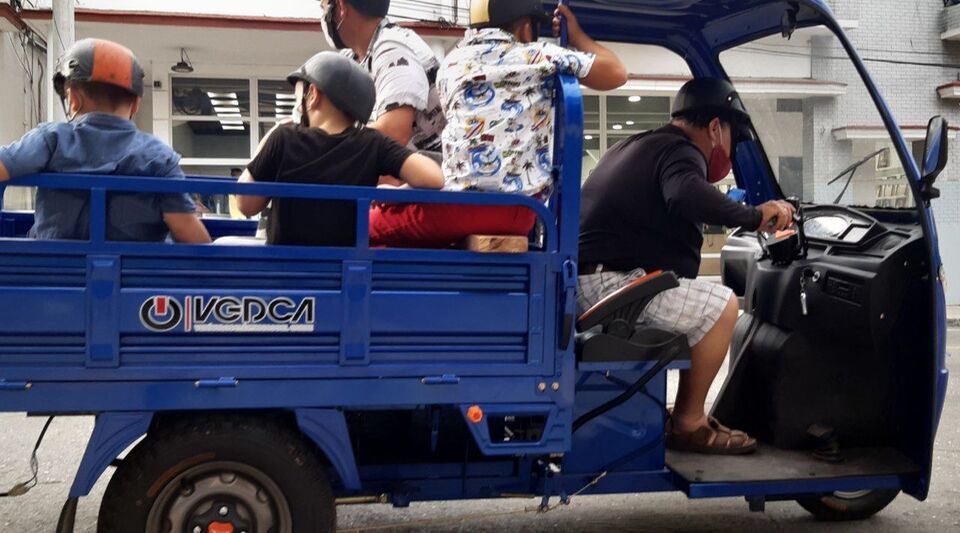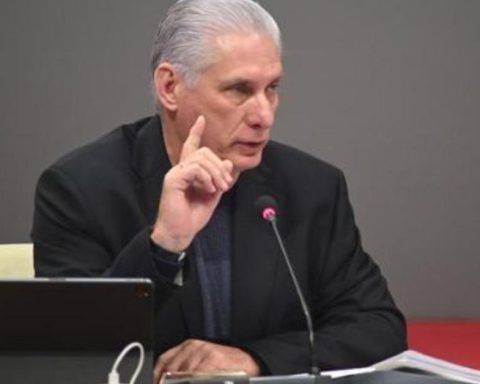Vehículos Eléctricos del Caribe (Vedca), a mixed Chinese-Cuban company based in Havana, intends to earn 35 million dollars in 2023 with the sale of its electrical products on an island that lives to the rhythm of blackouts. The Chinese Tianjin Dongxing and the Cuban Minerva will manufacture 10,000 motorcycles and the same number of tricycles, in addition to 500 quadricycles, partly destined for export to other Latin American countries.
The official press has announced all over the topon Monday, the Chinese collaboration in the “renewal of the automotive fleet” of the Island, which now has an assembly plant paid for by Tianjin Dongxing, built on 9,000 square meters ceded by the Cuban Government, and the workforce of 60 workers.
Vedca’s production history since 2019 has been 2,500 motorcycles, 1,500 trikes and 1,000 children’s electric cars, whose global sales produced six million dollars. Now the bet has increased and is presented as “a breath of fresh air for the Cuban economy”, which has recently reactivated its business with China.
The initiative, according Havana Tribune, “It has won the island’s market,” although it does not mention the foreseeable disproportion between the Cuban salary and the prices of the vehicles, nor the fact that they must be paid by buyers abroad. Two other circumstances that the official press does not mention are, on the one hand, the difficulties in recharging this type of vehicle, in a context of constant blackouts, and on the other, the numerous motorcycle fires.
Electric bicycles cost $788, motorcycles between $1,400 and $1,800, and other toy vehicles, such as motorcycles and children’s cars, are between $180 and $500.
Vedca offers its products through the market on-line Big Island, a platform based in Canada. This firm, which presents itself as the “best, fastest and safest price” market for sending supplies to Cuba, offers the purchase of various products that can only be picked up in Havana and Santa Clara. A cargo trike without a cabin – which has become popular among drivers in the country – can cost $2,955, while a “touring” trike with a cabin costs $5,830.
Electric bicycles cost $788, scooters between $1,400 and $1,800 and other toy vehicles, such as motorcycles and children’s cars, are between $180 and $500. Isla Grande also has parts such as rear-view mirrors –at $16.70– and tires, between the 40s and the 80s.
After the purchase is approved, the vehicles can be picked up in two days, “turnkey”, in the case of Havana -in the Vedca warehouse, in Boyeros and 100-, and in ten days, within the Minerva Stores in Santa Clara.
The manager of Tianjin Dongxing, Wei Yunpu, explained that the aspiration of his company is to replace the “old” Cuban cars, whose “spare parts are difficult to buy”, with electric vehicles that prevent “pollution and maintenance problems”. .
Yunpu is optimistic about the sale of the vehicles and assures that it has been the demand of Cuban clients that has motivated his company’s greater commitment to the Island. “This project first satisfies the demand of ordinary people for transportation and business needs, and creates jobs in the country with economic effects for the whole society,” he said.
“Any of these vehicles represents almost two years of my salary,” said a user identified as Damián Ferrer
For his part, the general director of VEDCA, Julio Óscar Pérez, recalled that Cuba is facing a significant crisis in its transportation system and that the vehicles of his project will directly help a group of families. In addition, he assured that most of the production will be exported to various countries in Latin America and the Caribbean.
VEDCA is the first joint project signed by China and Cuba in the automotive field, and its directors assure that it will be “a stimulus” for other Chinese companies to take advantage of “the facilities offered by the Cuban foreign investment promotion policy.”
The reactions of the readers did not wait. “Any vehicle of these represents almost two years of my salary,” said a user identified as Damián Ferrer, “and I have no idea how to acquire one to solve the transportation problem.”
Another reader asked to “involve the banking system to achieve the sale of these equipment in Cuban pesos through credits.” Finally, the user identified as Julia described the news as “lack of respect”, since those described by Vedca as “ordinary people” receive their salaries in Cuban pesos.
“The salary is badly enough for a single meal a day (…). So don’t even dream of buying one of these equipment, besides, they don’t even sell it in installments in national currency. I advise you to value well what you are going to write before posting and prevent the reader from becoming even more irritated by these types of comments,” he said.
________________________
Collaborate with our work:
The team of 14ymedio He is committed to doing serious journalism that reflects the reality of deep Cuba. Thank you for accompanying us on this long road. We invite you to continue supporting us, but this time becoming a member of our newspaper. Together we can continue transforming journalism in Cuba.















